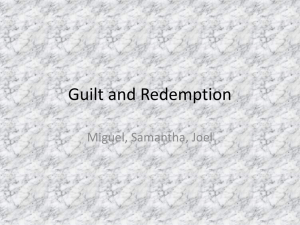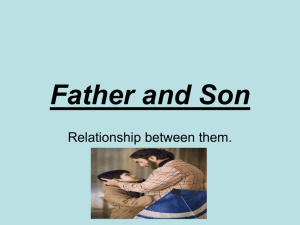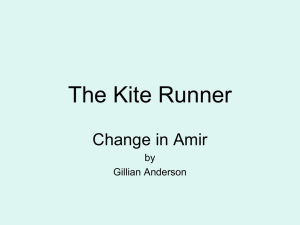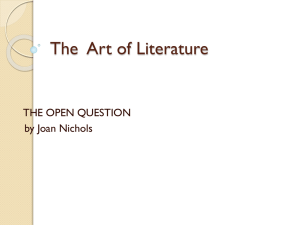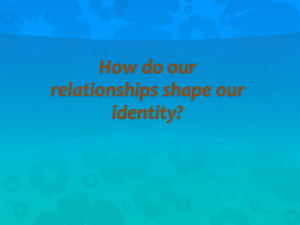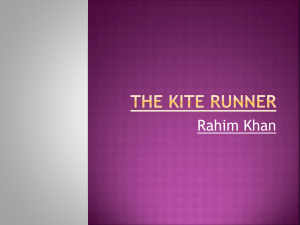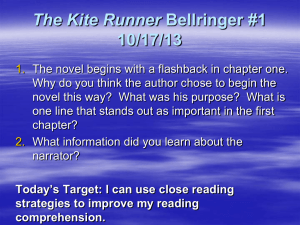The Kite Runner – Guilt powerpoint
advertisement
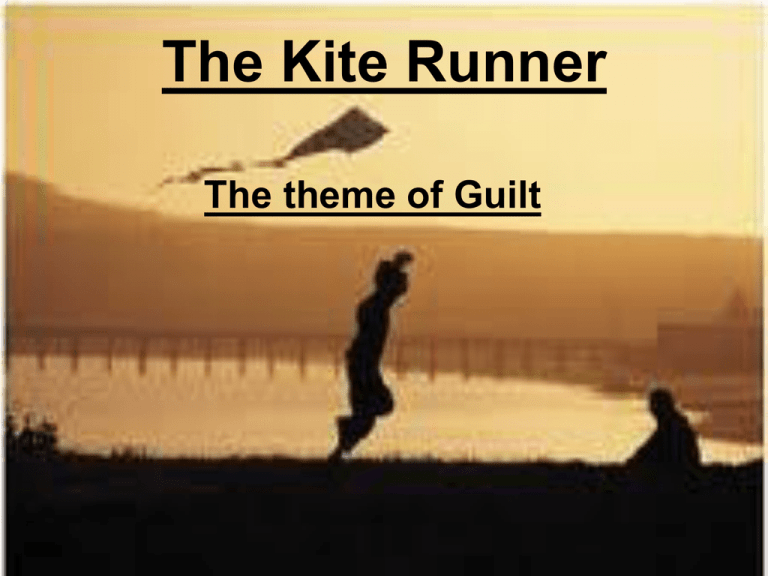
The Kite Runner The theme of Guilt The theme of guilt is first established through the opening chapters of the book: • We learn that Amir's mother died in childbirth, and that this is one of the sources of his guilt as he holds himself responsible for her death, and believes his father does too making us feel empathy for Amir. •A good example of this is through the quotation “After all, I had killed his beloved wife, his beautiful princess, hadn’t i?” (ch.3) •Amir’s love of poetry provides a link between him and his mother, and this is a constant reminder to his father, of his wife and his guilt over the sin that he has committed. •Quotes such as “By the time I was eleven, I could recite dozens of verses” and “One time, I took on the whole class and won. I told Baba about it later that night, but he just nodded, muttered, “good”.” (ch.3) The theme of guilt is further demonstrated through the character of Amir and his actions: • The line “Prized trophy in my bloodied hands” is significant as he comes back from the kite tournament guilty. • Amir’s guilt is clearly evident when he sacrifices Hassan for the kite, the line “Amir agha and I are friends” (ch.7) shows this as even though Amir is listening to Hassan defending him to Assef, he does not go and try to defend him in return. •The line “Redemption. And then? Well…happily ever after, of course”(ch.7) is ironic because Amir believes that after what has happened that this will lead to his redemption, but it only further adds to his guilt. • Even years on Amir is still living with his guilt, as during his graduation Baba states “I wish Hassan had been with us today” (ch.11) and this only reminds Amir of everything he has done. • Amir’s guilt manifests itself physically, as he is literally sick at the mention of Hassan's name and also becomes an insomniac. His inability to sleep is due to him witnessing Hassan be sexually abused but this later enhances his guilt upon him finding out they are brothers, as he was not just watching his servant or friend be viciously attacked but his own family. The theme of Guilt is finally rounded of by Rahim Khan: • In his letter he wrote “When he saw you he saw himself. And his guilt.”(ch.23) Here Rahim Khan explains to Amir that he was not the only one that suffered from guilt and that it wasn’t his fault, so he should stop blaming himself for things he was not responsible for. By Rebecca Samet By Rebecca Samet
